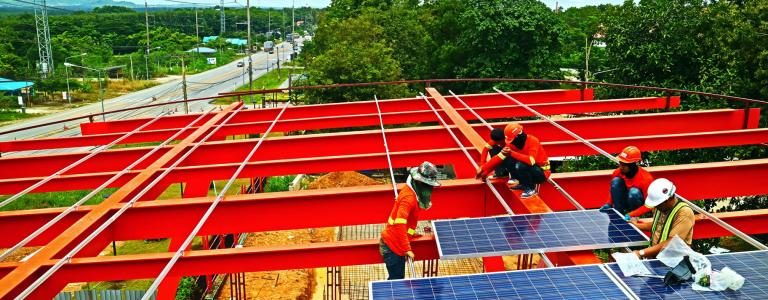Just Transition
Energy transitions are about people: the ones who make the decisions and the ones affected by those decisions. A "just transition" approach ensures that the affected people are considered by those making decisions.
The world has seen many transitions in the past, from automation to the decline or relocation of entire industries, leading to job losses and economic hardship. This has created a fear that future transitions will be similarly painful.
Low-carbon energy transitions are already happening in many countries, often due to economic factors or health concerns, but also supported and accelerated by climate change policies. Nevertheless, the actors involved, including governments, businesses, workers, and communities have a tendency to protect the status quo and keep carbon-intensive industries alive.
Early action on a just transition can minimize the negative impacts and maximize positive opportunities. The Paris Agreement on climate change includes just transition as an important principle. Just transition is not a fixed set of rules, but a vision and a process based on dialogue and an agenda shared by workers, industry, and governments that need to be negotiated and implemented in their geographical, political, cultural, and social contexts. It is implemented with a set of guiding principles, such as the International Labour Organization's guidelines for a just transition.
Articles
Could 'just transition partnerships' drive change in Latin America?
Originally created by the G7 forum of major economies – outside of UN climate negotiations – Just Energy Transition Partnerships were born as a broad financing package to accelerate the decarbonisation of the energy sector in countries highly dependent on fossil fuels, particularly coal. JETPs seek to provide support, tools and access to international funding in order to accelerate the energy transition. They also aim to increase the ambition of the partner countries' nationally determined contributions to the Paris Agreement on climate change for 2030, and reaffirm their commitments to be carbon neutral by 2050.

How the UNFCCC Can Tackle Fossil Fuel Subsidies at COP 28 and Beyond
COP28 could be a turning point for action on fossil fuel subsidies—if there is political will. How have fossil fuel subsidies featured in UNFCCC negotiations so far? And how can action on fossil fuel subsidies be taken at COP 28 and beyond?

If Not Now, When? Ambitious energy package is a must at COP 28
As COP 28 approaches, all eyes are on the energy sector. Amidst a striking 91% of global carbon dioxide emissions originating from fossil fuels in 2022, the world is watching for an ambitious energy transition package at this year’s UN Climate Conference in Dubai.


